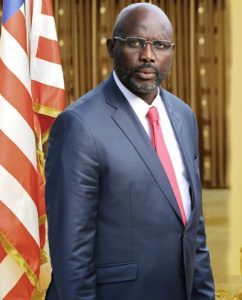Here are reasons why Liberia is the place to do business…
Liberia is rebuilding after 15 years of civil conflict, therefore, the opportunities for investment in Liberia are unlimited. The national infrastructure (roads, bridges, water, electricity, airports, seaports, etc.) has to be rebuilt. Investment in health care, education, hotels and housing are critical services the country needs.
Liberia has opportunities for investment in cash crops such as coffee, cocoa, and oil palm. Food crops such as rice, cassava, pineapples, bananas and plantain. Rice is the nation’s staple food and the country imports over 90% of its rice needs at the cost of about $80 million a year. The natural resources offer significant opportunities for investment. Our primary resources include diamonds, gold, iron ore, rubber and timber.
What is the government doing to encourage investments in Liberia?
The administration has a broad vision about the role of the private sector in Liberia’s recovery; the great potential for private sector investment; and some key steps the government has in mind to strengthen the environment for private sector investment going forward. The President made it clear that a strong and vigorous private sector is absolutely central to Liberia’s economic growth and development.
![]() Download the following trade related documents:
Download the following trade related documents:
- Doing Business in Liberia: 2017 Country Commercial Guide for U.S. Companies
- Investment Liberia: 2012-2013 Volume 3
- Liberia and U.S. Business Summit – Full Program 2012
- Liberia Investors Guide 2011
How do I connect with the rest of the world when in Liberia?
There is ongoing recovery of Liberia’s infrastructure:
-
- There are four telecommunication companies operating in the country
- Wireless Internet
- Hundred of miles of repaired roads
- Multiple flights a week from The United States to Belgium and Liberia
- Light in the city
Liberia is open for business with great opportunities for investors. Self-sufficiency in food production is key to Liberia’s economic recovery as agriculture continues to be the dominant sector in the Liberian economy, accounting for more than half the GDP and about 70% employment.
Principal crops grown in Liberia include rice (the nation’s staple food come mostly from imported sources), sugar cane, cassava, oil palm, coffee, and cocoa. Fruits grown in Liberia include banana, papaya, mango, and pineapple, and citrus fruits such as orange, grape fruit, tangerine and lime. Natural resources include iron ore, timber, diamonds, gold, and rubber.




